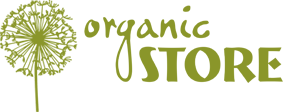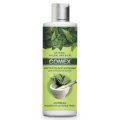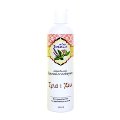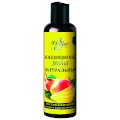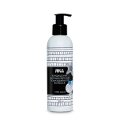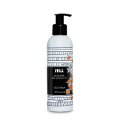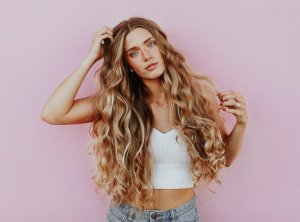 A typical hair care routine includes shampooing followed by conditioning. For most people, using a hair conditioner is a no-brainer, but some are thinking about maybe foregoing hair conditioner because they feel like it’s useless or does more harm than good to their hair. What will happen if you stop using hair conditioner after shampooing?
A typical hair care routine includes shampooing followed by conditioning. For most people, using a hair conditioner is a no-brainer, but some are thinking about maybe foregoing hair conditioner because they feel like it’s useless or does more harm than good to their hair. What will happen if you stop using hair conditioner after shampooing?
First of all, let’s figure out what a hair conditioner is and what its main tasks are. The main purpose of any hair conditioner is to improve the feel and appearance of hair, as well as to make it more manageable. In addition, most hair conditioners have various other benefits: some repair the hair and strengthen it, some reduce breakage and split ends, some help to take care of bleached and colour-treated hair, etc.
Back in the day, people typically washed their hair with soap. Soap has an alkaline pH and strips the hair of moisture and natural oils, often leaving it dry and unruly. So people started to look for ways to neutralise the effects of soap on their hair. For centuries, natural hair rinses and oils have been used to condition human hair. For example, in some regions, women used chamomile or nettle infusion to strengthen their hair and make it more manageable, while in other parts of the world, coconut or argan oil was a go-to hair conditioner.
Modern shampoos and hair conditioners were invented at the turn of the 20th century. The first modern hair conditioner was a hair grooming product named Brilliantine that was presented by the French company Ed. Pinaud at the 1900 Paris Exposition. Brilliantine was formulated with glycerine, castor oil and alcohol; it was designed to soften men’s hair, including beards and moustaches. Hair conditioners for women were created a little later.
Since the invention of Brilliantine, hair conditioner formulations have become more advanced. They contain several main types of ingredients: acidity regulators, antistatic agents, detanglers, glossers, lubricants, moisturisers, oils (essential fatty acids), preservatives, reconstructors, sequestrants, and surfactants. Common hair conditioner ingredients these days include fatty alcohols, silicones, and quaternary ammonium compounds. They smooth down the hair cuticle and make the hair softer and more manageable.
To put it short, hair conditioners have come a long way since Brilliantine. They have proven their effectiveness and earned their rightful place in hair care routines. But if this is the case, why do some people decide to forego hair conditioner? Is it possible to keep your hair healthy and well-groomed without conditioning? Let’s figure it out together.
As we’ve already mentioned above, modern hair conditioners are formulated with numerous ingredients that have different chemical composition and functionality. Some of these ingredients have their pros and cons, and for some people the cons outweigh the pros.
For example, silicones are widely used in hair conditioners due to their ability to smooth down the hair cuticle. They make the hair smoother and glossier, improve its softness and manageability, reduce frizz, and produce an antistatic effect. Today, it is hard to find a mass-market hair conditioner that does not contain any silicones.
However, silicones may build up on the hair surface if you don’t rinse off your hair conditioner properly. As a result, they weigh the hair down and make it look greasy. In addition, silicone build-up on the scalp prevents hair follicles from getting enough oxygen and nutrients, which can lead to excessive hair shedding.
And this is just one example. Along with silicones, hair conditioners, especially cheap ones, may contain other “dubious” ingredients, which makes the position of people who are weary of hair conditioners a little more understandable. But do the pros of not using a hair conditioner really outweigh its cons?
The answer generally depends on a person’s hair type and the overall health of their hair, but in most cases, ditching hair conditioner does more harm than good in the long run. Shampooing without conditioning usually leads to tangling, split ends, breakage, and excessive shedding. The longer and drier your hair, the quicker you will notice the negative effects of foregoing conditioning.
The thing is, even the mildest and most gentle shampoos are formulated with surfactants that lift the hair cuticle to remove dirt and excess oil because this is what shampoos are intended to do. If you don’t use a hair conditioner to smooth down the cuticle, your hair will become more porous and start to lose moisture. This will eventually result in brittleness, split ends and tangling.
If you have short hair and your scalp produces enough sebum to keep your hair lubricated and smooth down the cuticle, you may be fine with just shampooing. In other cases, it is important that you condition your hair after shampooing in order to keep it healthy and well-groomed. If you’re weary of silicones, parabens and other “dubious” ingredients, just buy a natural hair conditioner that is formulated with plant-based ingredients.
Such products contain plant-based polymers instead of silicones, which make the hair smoother, glossier and more manageable. They are also formulated with natural preservatives instead of synthetic ones. In addition, natural hair conditioners usually contain plant extracts, carrier and essential oils, hydrolysed proteins, and other ingredients that help to take care of the hair and ensure a great conditioning effect.
In our online shop Organic Store, you can find natural and organic hair conditioners produced by trustworthy brands from different countries. We offer affordable prices, convenient and secure payment methods, and international delivery to most parts of the world to make your online shopping experience as pleasant as possible.
